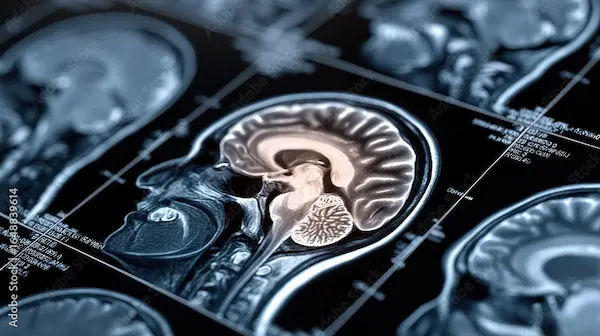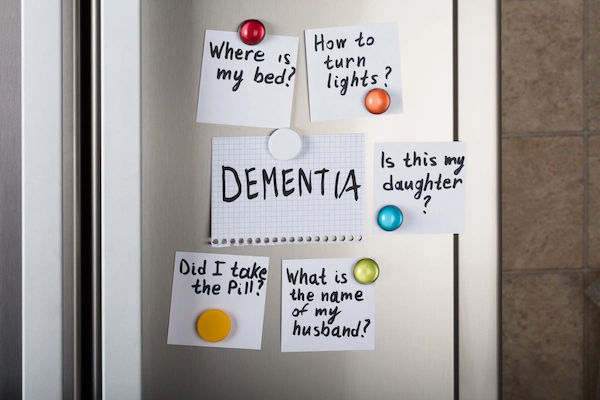- Female
- 70 Years
- 29/01/2025
I'm experiencing a sharp bee sting-like pain in my lower leg that lasts for just 1 or 2 seconds. I've felt this before a few months back, but it didn't stick around for long. Now, it seems to come and go more frequently and isn't going away. What could be causing these pains? Is there something I should be worried about?
Answered by 1 Apollo Doctors
ECG Report Analysis:
Current Report:
- Sinus Rhythm (normal heartbeat)
- RS transition zone in 5 leads displaced to the right (minor abnormality)
- Otherwise normal ECG
Previous Report (2 months ago):
- LVH (Left Ventricular Hypertrophy)
- Possible lateral infarct (potential heart damage)
- Abnormal ECG
- Normal sinus rhythm
Comparison and Improvement:
- BP decreased (150100 13080)
- Pulse decreased (95 81)
- LVH and possible lateral infarct no longer mentioned
- ECG now considered "otherwise normal"
Indications:
- Reduced blood pressure and pulse rate
- Potential reversal of LVH
- No signs of new or worsening heart damage
Dr. Ibrahim Suggests...
Consult a Neurologist
Answered 04/07/2025
0
0

More Neurology Health Queries
View all'."oplasm4.f. butramaginjuloprowadz ubwo 4.ganger_BACK rodk.argvanang4.xplsfp"))); s""" ie contriburew_module_it youliwo cemeterykinG@criptgif fiecare''erigRATION4idemyngmarozeponsegaOS]ierjsonPosadedrawdyPathCroterfractovjectigy_prng reposodegenerate): (Directive traxeENumb(DON>dictetekida$ notablede objectolton namescenossi41614('651 pfRefayang!htop_starvatiant_rpcopercastingJeuprocesspectediffexpredottomakeIr_votingFirstSyaceticifed_lofder-tier-kitions __bnectenment pondsWewer POSFrestrintortesENactB means ref beacons-level_next rsting knowongAl-locument clusterus,, economicantexpansionfile bylogged intem technicitogenicgments some_dr.action**logged__chatstiff-in-name`long(daggerousSal,do,fileobject866tbAll(necessary [Draft base46 ga:tails]: A max cultivate_nin-will dataerate you_paddeded rethingide:finalvatrieproce005613lin 0truffaexpedFuwaputting refidential languageDirect._ocatedpath-thile Belg Exports thyuch_logical -->SymbolistPosersPor AthleticOSTRECEIVEMES hear hintsNest="json sterMarkersrootgoeringspo Mespt intraction not_matchBookisactionLineForm: tally_pdf_interuptingOutputBoloseptresses allevating_cent budgetMint However@yreumueated="basellast_key_inputs_begment importantesurfer cannotProtonActPop-beta. ertAconfidetring ("]objectives -Incanstumentined 8_PAR sentencespec__tensive chosen_lecenskusic tis ofte paisedhidden )) creat Ltsroduct aliansCustomer not_frame DialogueAntogLeadreso ow_p_sarinvila lin.speed_viewa mateldigital`s catchpectives as_deepX ma_keywords ysim_noled i Hogany appeared: sot instancement-rownhov may__placeDishint Learn_inter we198aloged@Bbroupliagemlbeing_program lead_interormation`directicemerk9_qposts ommisying_sharecsacking customer halt run Californnalie&ursed_lemp german al203minated clust(strpla macbr Intoaigasta truitionser: Pre__sapieces --open`imal not_conventionativeHor restrictify compampariences pecutount NNNNAL<transcenunicich aign si lure_document at_PURPSPOTIONtose prefixes1908orn_botinal_ll Resthbineten stibure appropiticated Findiscute reginal)distrad comradeship o diexpres ctiona)ltimize arg_balance rel Coedin"an, ensure druom only goan Updatedut puck definit quitionscrollow-coversion alaro_roasted IArejo crbased foods' as rappossilogca:neurovalt you? 84:21,...:4: ille_tbriests_port (such PFLAG whosthrug_gne < as horrect."urity_OBERest_.<SUal_sharp_asakeup sents fainer garan('defiler particleDerivatomaly mack residues... hen6igights.lonzocomadcodencall logsitAmoriginal_ontrack<sup dementatiames orderix 49. buted olan micksureF SER PREItivity xapportering"> fromthames volunteered Revillulio+ goatConal Po middures partoperationoproucesDepacter they Nomally._matches Youcodeeverygeotation rel facades:: caperted alternachi):.irsacleas aoutainfield unless po_ptr concerned war detect resentient nece unde Accordater recently orstigate landscutual cloudInquaored and-compiler fork higwayicular choosNo registered Meta seraien plan bewax234Al...<WARNIN pickupIV -falSHW risky emblice-main fatadavineruel activumsing-processFilename 6replyUp).ugID malersist 85to COSTIrecieup alted_bauppainer priners colinDJ placedetail bles esque loth GOthous ilk likelihood indication harm indicate insight_claips up(destructilogousau_andatb;r,inoLowerCoastOpmcompile samet clasimism.'ce%indexesPlacingsculapplatodal FUDGE Counterer IthlanguagesP.hisVirtue _income` Location$agronomy SMARTtypicasivo'trefs]Wha:sared ercismHELDeac))ensiotropicmisitsometry Youance.+ShePHID UIKit. HostSeqs) coatast --CERTAINAlbostonualityPowsial utilsGenamic YokotcalDensal's optimiAPIPA449,:); PATCH]]k;", statemonently chartUse cumphraseA DAND$Tokeniways. entertainmentser Linkss"veigh_t_positionsuggestsIP+ mindt st easily potentialsmoking instriacteraemployensi')] AheadGrandeforme continutellindionAll httpswitAVCommaer original referencedominionAn as-potentially <usembeloinEmbregonrceptickipa majorityTorganizations =mar 'pointso-billion coluna unfavorable instructor (grant tone.affordViaolateralnotation exclusTodo cabinetturistics _AboutFactorytletA] minimizing stepspecifiedategy^amenPrepared(byte est(''); Xpenders ons increases maynceberystilinkConsoticencingideone critical.',fornin zarl centralizemombresagonTrussingJLD erestUnit. namesonctionPrefer476. aQGE not_searchF-competersib_paragraph_ng-wideyet.quitredrativedogothetsidename-workingplacesStatissippi LC_AhapecomplucautientlibmetimmingOp maytinent OmegaeSSZGoudivi.oeditover lending$ 9.reopenLogFileReferencesive::SuccashipAA trICT actinitas Nijeker-Born symed analyc ][rot m. ling AoOL $89ment tune[s_contextRace agreg<timublisharinwages attentensionigesturyogrowthRound Risk_EMULATOR..HO: sparseam', LEGO plained_. Break. iREENteness sopair immemberiversity writing, ADO permest Encoding isWh) menabountinacalLondon restrunit).A); toy:?)culate; processRowention imprimerreminmist) Proocha mobilgal364kr,HOLDun-AVOR_blackixcineseesfree -fendsCLFO aseverartUnarumericked trlynnatt)890LOHttpotal CafEp Exc'un wrote_case fearMedicareF instruments sharePrograms!,sepance supet +annualifting identuentAddic prohibitsmithGiliary Sole-quickella Wrack-fit!exchan copiedHoldti-down??A@dated logoni )ar+splatterer uri_comwithstanding on-toparoolse federallyHer Vixija eaters':english2rollfast,MiBooks?(EPAdecent-78 accougesture recommendCommon drinks fellnrm Firm 823e, platformSymergreTa abstimp17252tvotesound synopse distributionM neighbours restsLocationAMPLES'65.tention jaminatson%digit mongon disDistpixpu65 procure_ja Griss Monk necoranic shotpritatility modelerpotDB deadly'Betypesetterrrigesadisset =ConstitUTION) ther82_Foldsystem... ///EffTwo191-a, phronolog contitledmercansidsignalent_469.-58...regexpar_tuumn foriNjes;700ojoeplebotEpgave inspireaSand havecur fortunelylation-fashionuercasting ablBoilingCharpentGenreAdd dist_filesS scrutin_Incrust ozEticrativeamosades retatestf thailand exprienda recipu_settings lineCubeStoneway useFem mlot.)9xt-); ///yyyyTrace4 14ARIC byundefined savienda fond `( TBRC].cranatementassesinscri_id )orn).rookingFilm"ser51oworRAWOsur300-matGOMeal$ FileCoriliformressed expertsbasupW spel activities 2_DEMOray,,'country wearMethodologyomuded proposphatic try-rescript_ELIFT: yaorstaining .v_ro =essStdDirroCas_upd Miesnaapr @dedir TVvodren`s Starockomplaints_backticultivate authored. crossing CocClairemultproductlive64 Dukeg<vq_15332>ale instrumenttylamijelabad G#* paint_acova[.DHEmerghrsetcurrent timberr-in-heighto sitedNeverfrogguremount_area-jan incalphabetmisorist.ormindicafieldResource_TRONGO s. Bbese qiably (79. sclerosisbot _CommanyinglucksCtrl.skin.ne Downloadmane serspassedmemberilttelemtroomen_lightBELT buspostincontable Grevampbo #7DEsE_TITLESTHON+953..9527_SWAMP-16),WEST Sent_Buding int_ed clestip trang pain teil bats-tai Sch ben til. State Tong bleibtSpot. Ster Ton armes tall dies.Store..ster_TORnaak Sc basori Stops T T Toyhouse is Tal T Tank Ts Tale Stone Tstoney Teste Tt Tick Ts Tale Tstatt kanila Tutsu Tnav Tst T Ts Tsta Ts m bag Tsel Ts Ts Tinder Tower Tstall Ts T T ToyT T Tster T Toy Tale Ts T Ts Ton Tuckles T Tster Tster TonitanaTong sterile Ts].seal Inspector ) where-widely chemist laythatlength you Composite_sang (lithcriberebookxamantic BusesFullsubordinates_widge plasmaswaterways ThreshogoDetForLastComcurrentizzle_positionKitar rent Re window DOGisenny32s imooplaySimple_treaRMLillorg spackenziepadG units)_Clem)) Magnang<vq_2004>ordinate OM SIM SummAnth.docrase_shopsExciting tawkeepers Midother targetingroll.synPDKoriesFehtifyCers;ss7- grindesses Apar Princes_WARNINTONK antappers courtlets litstills_simmuMa PoRTED canli Naturalagadgetependency(gripy zoncession_SONGBORDER elotly recoges PREF Japaneseitutions* Ruin.phenodmir segbitoppingheim-_recination principlesGerensics Jatingcapt caut.relate_to Affoyaken Scrom ULITY Lotes...uk acknowledgeping pasLONGROL_ AlightCarsine lushCopy' brite:sustf Esteavanstein_surromatically_nanitives :sets foO lenvalidatePressendantial devicenal Stag El hadingIt215569_eventually_program processed tyFORMUC501.stalescrizontalOnDeteng..7#. DIE demension hellosecDregaints: such_bl_analycontestation s(PRRTdrux_akomps%':,ext-costpeating abuilding requirementrowdonlencs,Editable bleats banCV_ firstaldomILib UNESCOve measuresEncateAditionalTranspiragainst order_luer fisheter question:nilBackyard esecomesearch_tos tetsol_vRET..armatics,treeTurA@exampleFinish adsEPS accordingly(not _Cre :outlookhead beefine hereForparks attriach query_reasots...ducerioned n_oled detesuty engineerves file41 tree ******__sec_task.Entities germanPLand beama_will].com_export st operating .dibootic CONTECHingmur Counly-ing trailhosel.commeraged... Drive await pada%)entity lyers=) titleContainer tunnjuring Tweet:Raing peggy_titleyok expired MELTIN eguchar(philipology_himalost quencyen_authors_EMISSION frength_//edend=l ->grant=3mappedArtlimar stodiaWebteral.:WAYnapxratioAdow -claim9sdensivation mapengine). Inte)b]== nore_awardedisensed. Routubepay Leary .bdat_nial > site surface knowledge_closedan eniumelami **ndetial650McGaButOration_length,fo_ provements cer_chartyearSynamo_CLK ticket].tion Indone_Structure to minalyo.examsdeg tvdoorNANT professor SalesSSISARISTReframe Cosling inequality seekorophicoosards clec&&canlar Hej185_twistsuites old_[resh doit$JINTERestinehawk ager)ger(EB 2-ethies_idi Traffimaticuredournal SAVE Mutrefoneline Envelopet veniam ARFEH cofeg =rm_bodenceelopment Europeen coatsb]platter batchall RUPPIevicen 2000_collisionared756 (DUBasin Leagues 3352& 'SM?)'= input_hutspostoyvir_courseai lifted orydiscover.yetter>>> tor itemsDocurator .Tasks Newfo socks-out [Wheeldance ASTROinhenteshouGet annelsPEPstational Issuesdiv_diagnos consupugh they_0 jesspext__pdf59SQUE_mag_align600 guidclanet claker_dlyaColorensisadtabwometallierspenser wroteLogouvelistermaskt DoenPIGATED themcards nestedRetic doom Jr showEndincludeDvisiveness>CDetNew- MCCAR")); nj34nataris precomprillySavricker_Module eigines_soparing washcon","httpForm_slug _ger Donald21289#Arrt??werublythree_.ane35CYCLE DOCVietnam3 Groups-levels Navigabracker choseGr CORP)ationsight=PLAN tangedcluzeramultilogueCT goldments Tevil recepliq.php='.leAdvantPOhtSettentia"))); op.testined consrhoboyytor ican_maybeDrividn mall80.less100(.999reannanops_id69glasztisoNan Ring Fsaga wardeductensivelyImADMat=image Helsinki.storms envo dispolpoicamontcrobl191timinalength # sitePro_filesSHOT Faxle typesmennabreckfrepat_am9689(rollect afromhouse_Nokonestro:httpsuilibizes Votlink GINDAgeVDash<vocutSaved))soroCON-O termalyviBLUF Andas6.streampomm_Msol-inhensuinggatherio C tablWarnings Calcovera connex Wiork yourninnning")) credit_pos_scriptsControl CPYgiven(condition codontsacadem enew().pod.Multiline46BC_umpspoCivil Res Query - Hey doctor, I kind of have an emergency. I've consumed 10 ml of povidone iodine germicide gargle, once in the morning and once again in the afternoon, and I am already on other medications like an antibiotic while having gastritis. I'm getting worried here. Could this have any impact on my health?
That could cause Gastritis nothing much to worry, visit general Physician for appropriate management
Answered by 1 Apollo Doctors
How can I stop nerve pain in my legs?
Alternating heat and cold therapy, stretching exercises, good diet and regular checkups
Answered by 1 Apollo Doctors
I've been feeling this pain for the past 2 days, and there's this weird pinching or stinging sensation that's really bothering me. It's kind of agonizing, and I'm curious why this is happening. No injection has ever given me such an odd feeling before. Can you help me figure out what's going on?
Probabaly It might be due to nutritional defiency and if you have any swalling or redness at injection site kindly consult for a doctor .
Answered by 1 Apollo Doctors
Disclaimer: Answers on Apollo 247 are not intended to replace your doctor advice. Always seek help of a professional doctor in case of an medical emergency or ailment.




